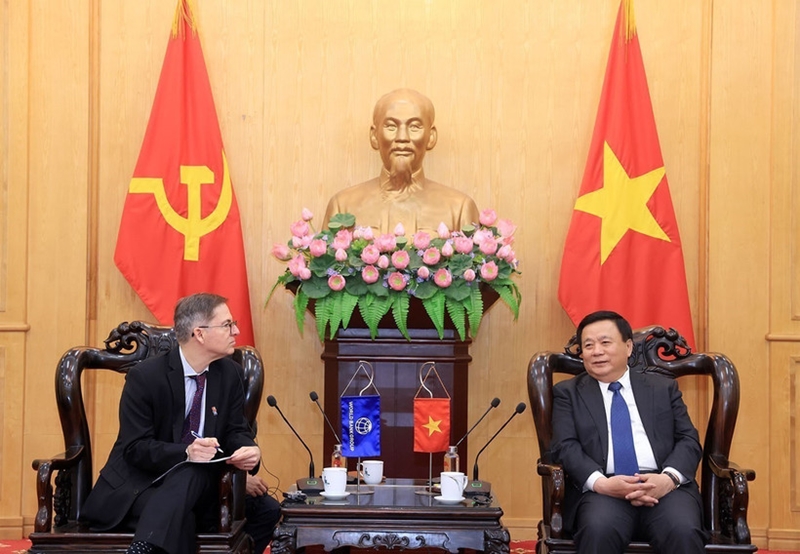At a meeting on November 26 with Carlos Felipe Jaramillo, WB Vice President for the East Asia and Pacific Region, Thang highlighted that cooperation between the HCMA and the WB produced substantive outcomes, improving the academy’s training and research capacity.
    |
 |
|
Professor, Dr. Nguyen Xuan Thang (right), President of the Ho Chi Minh National Academy of Politics and Chairman of the Central Theory Council, meets with Carlos Felipe Jaramillo, WB Vice President for the East Asia and Pacific Region. |
He affirmed that Vietnam’s development requires not only financial resources but also knowledge, governance skills, experience, and stronger integration with the global economy. The country is currently pursuing three strategic breakthroughs: institutional reform, infrastructure development and human resources advancement.
On institutional reform, Vietnam is working to remove existing obstacles while creating new frameworks to spur innovation, circular economy development, green growth and a just energy transition. Infrastructure priorities, he said, now extend beyond transportation and energy to include social and technological infrastructure and data center development.
Thang stressed that human resources development must focus on quality, emphasizing the need for a well-trained, skilled workforce that meets practical and developmental needs. He proposed deepening expert exchanges for strategic-level cadre training and jointly promoting forums linked to the Vietnam 2045 Report.
Jaramillo commended Vietnam’s development achievements, particularly the Vietnam 2035 Report, which has been used as a reference in the bank’s advisory work with other countries. While Vietnam’s loan demand has eased, he said the WB’s role remains pivotal in providing knowledge, technical expertise and support.
He suggested that future cooperation prioritize two areas where the WB can make strong contributions: human capital development and financial mobilization for complex projects such as high-speed rail, urban infrastructure and climate-resilience initiatives.
Jaramillo also noted the bank’s interest in supporting Vietnam's transition to a modern, future-oriented education system aligned with trends such as artificial intelligence and automation. He affirmed the bank’s commitment to strengthening its partnership with the HCMA to expand the dissemination of governance and policymaking expertise across the political system.
Both sides agreed to further enhance cooperation in research, policy consultancy, cadre training and the organization of international conferences and seminars in the near future.
Source: VNA